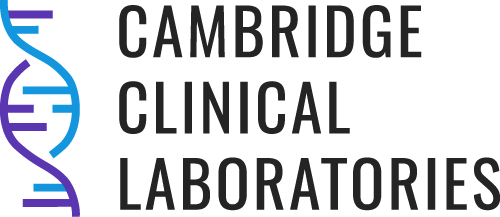
We provide companion diagnostic testing for many tumour types which can guide treatment by predicting the response to treatments, or by predicting how aggressive the tumour is. This helps your doctor personalise treatment plans. We can organise the test via your doctor and will send the results directly to them. Please fill out the form at the bottom of the page if you would like us to get in touch with you about testing.
Prostate Cancer
Prostatype®'s unique system identifies the genetic fingerprint of cancer by measuring information from cancer stem cell genes. The gene expressions together with other clinical parameters such as PSA, Gleason and Tumour stage are entered into the Classification of Prostatic Malignancy Algorithm (CPMA) software that is linked to a unique patient data base. The software calculates a P-score which provides a measure of how aggressive the cancer is, facilitating the choice of optimal treatment for the patient.
HRR panel
Used to determine genetic predisposition or as a companion diagnostic tool down the line.
Bladder Cancer
PD-L1
Testing is available to clinicians in order to guide treatment options in immunotherapy.
Stomach Cancer
Her2
HER2 is a growth-promoting protein – in some people with stomach cancer the cancer cells have too much of this on their surface. Cancer cases with higher than normal levels of HER2 are called HER2-positive. These cancers are much more likely to respond to treatment with drugs that target the HER2 protein.
Breast Cancer
Her2
HER2 is a growth-promoting protein on the outside of all breast cells. Breast cancer cells with higher than normal levels of HER2 are called HER2-positive. These cancers tend to grow and spread faster than other breast cancers but are much more likely to respond to treatment with drugs that target the HER2 protein.
BRCA
We offer testing of both germline and somatic mutations to guide treatment pathways and give genetic information to families with a history of breast cancer
PD-L1
Triple-negative breast cancer (TNBC) is the most aggressive breast cancer subtype. Recent discoveries in TNBC have shown that the higher the expression of the surface molecule PD-L1 in the cancer cells, the better the response of patients to immunotherapy. Testing is available to clinicians in order to guide treatment options in immunotherapy.
Pik3CA cf & Pik3CA Tissue
PIk3CA is a common genetic mutation in breast cancer patients and the gene has been associated with tumour growth, therapy resistance and poor prognosis. Patients who are HR+/HER2- may be able to take new targeted kinase inhibitors if they are one of the ~40% of patients with an activating PIK3CA mutation. CCL offers PIK3CA mutation analysis from tumour samples and liquid biopsies covering the Mutation hotspots in Exon 7, 9 and 20.
Lung Cancer
EGFR
EGFR mutation testing works to detect mutations in the EGFR gene within the DNA of the tumour cells. This assists clinicians to determine whether someone with non-small cell lung cancer may benefit from targeted therapy with tyrosine kinase inhibitors.
PD-L1
Testing is available to clinicians in order to guide treatment options in immunotherapy.
ALK FISH & ROS-1 FISH
Looking at the ALK and ROS1 genes - helping to determine whether a person with non-small cell lung cancer will respond to a targeted drug therapy.
RET
Analysing the RET gene to help determine whether a person with non-small cell lung cancer will respond to a targeted drug therapy.
KRAS
Looking at the KRAS gene especially G12C mutation- helping to determine whether a person with non-small cell lung cancer will respond to a targeted drug therapy.
Bowel Cancer
RAS – RAF
BRAF, KRAS, and NRAS are the most frequent predictive biomarkers for bowel cancer treatment. Testing is available to clinicians in order to guide treatment options.
BRAF
Rapid real time PCR detection of mutations in BRAF codon 600 from tissue. Testing is available to clinicians in order to guide treatment options.
Thyroid Cancer
RET
Looking at fusions and mutations in the RET gene - helping to determine whether a person with advanced thyroid cancer will respond to a targeted drug therapy.
